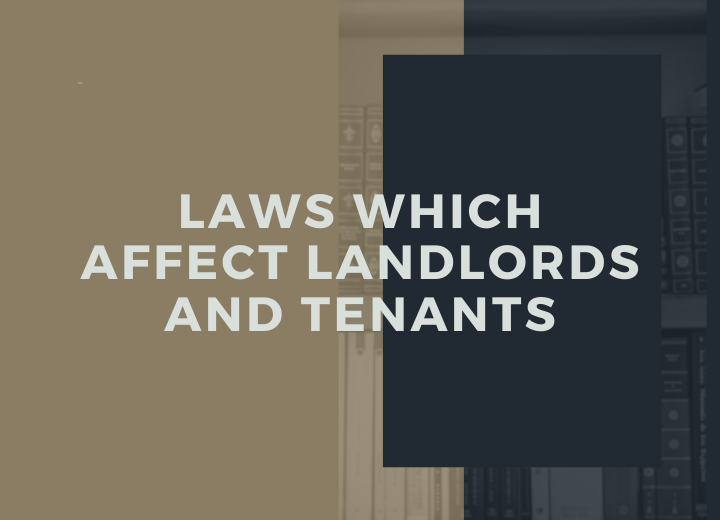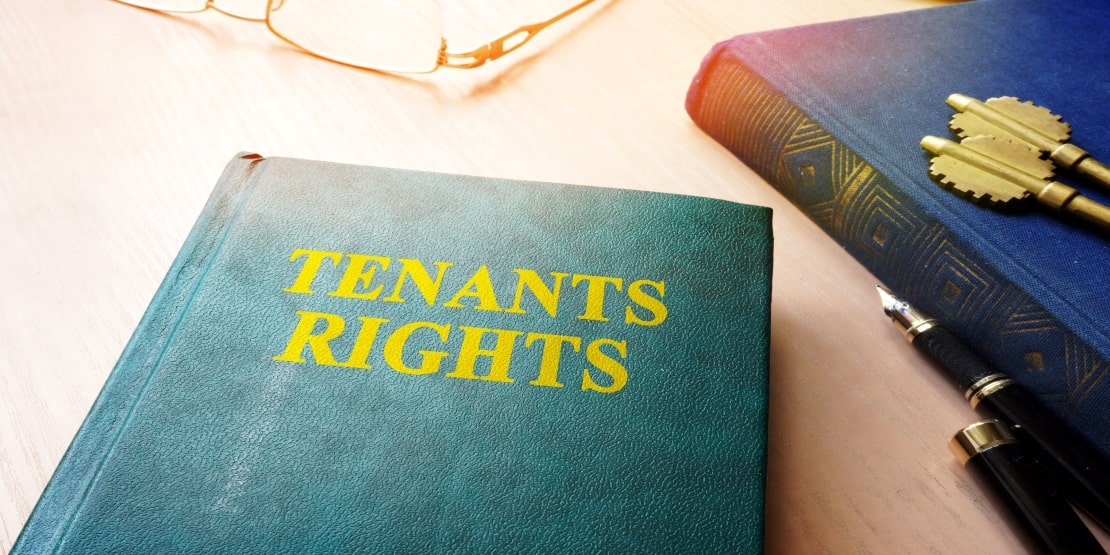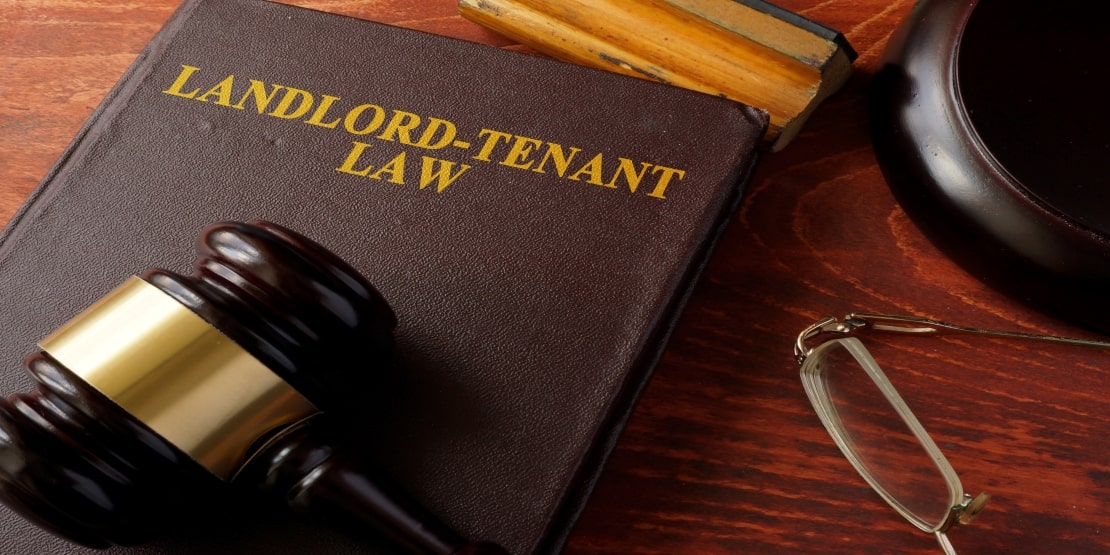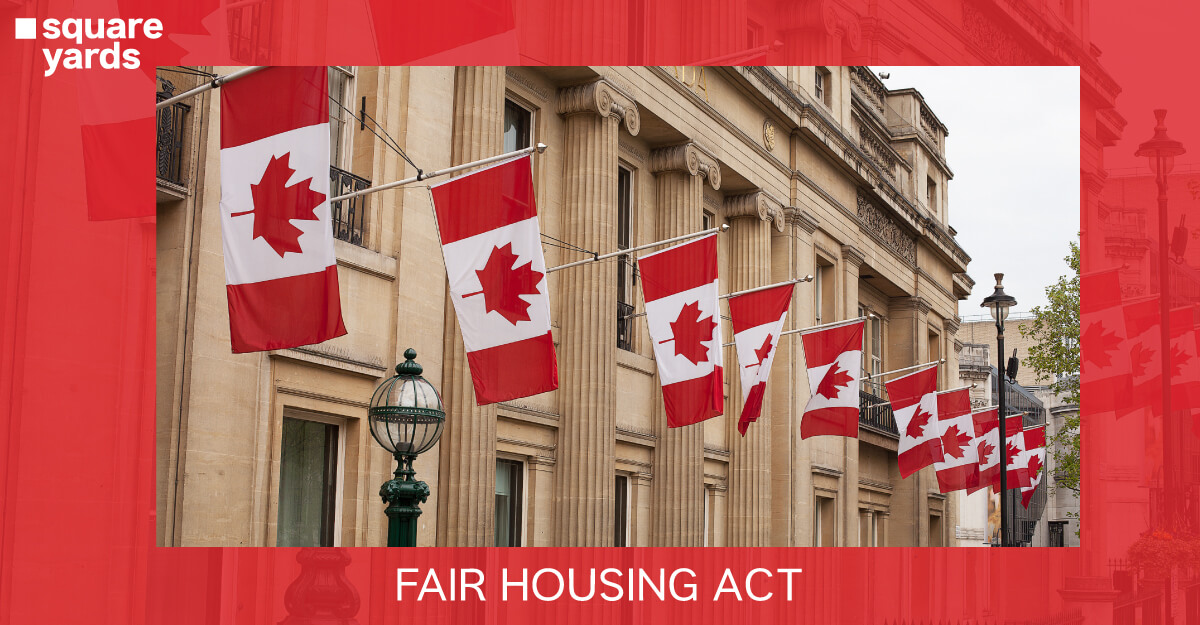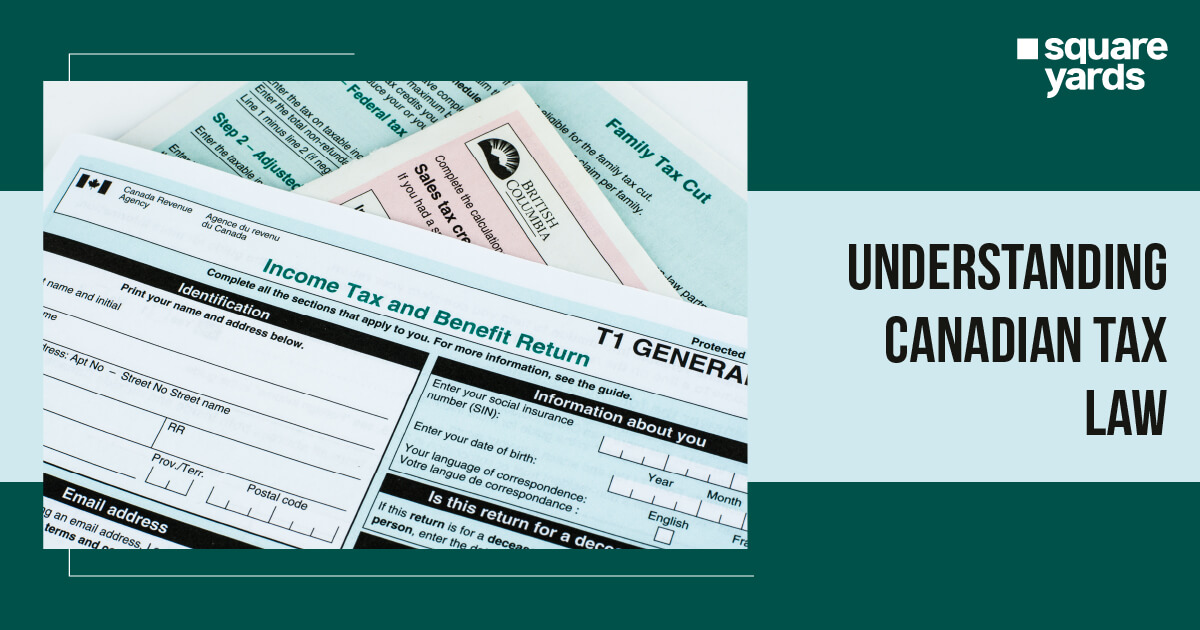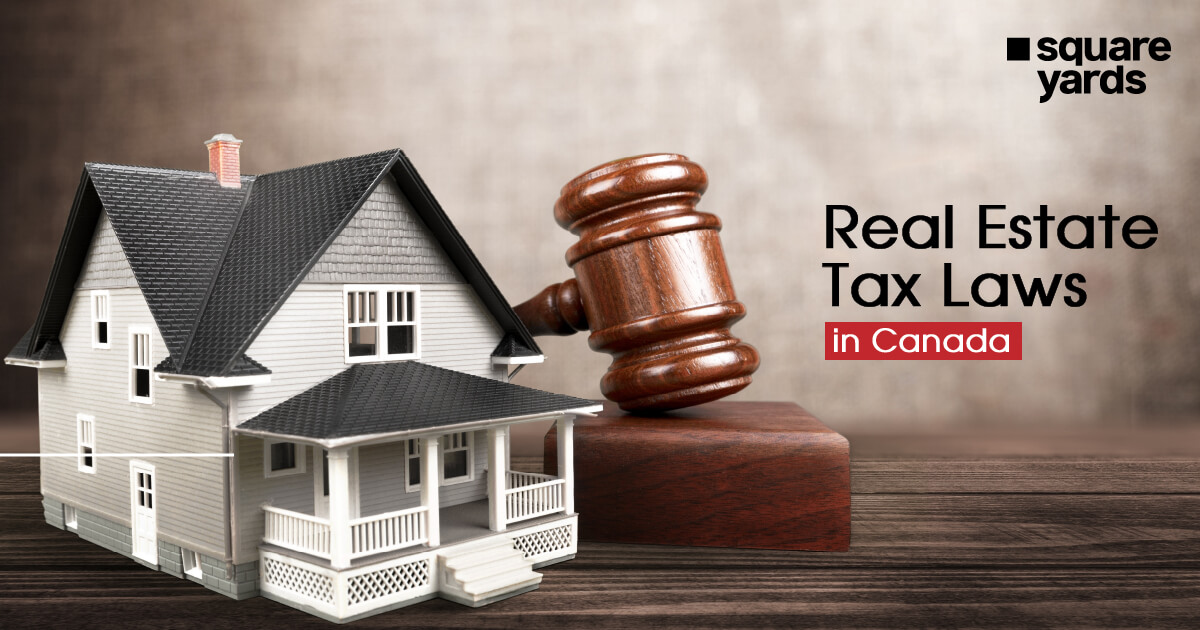Landlord-tenant rights in Canada outline the rights and regulations for both parties. These regulations apply to anyone renting a room, apartment, or commercial property. Whether it’s a commercial or residential rental place, the responsibilities and rights are the same across all types of tenancy. Before signing a rental agreement or addressing any issues with a landlord, it’s essential to understand these landlord-tenant regulations.
In this article, we will learn about the Landlord Tenant Act, including the rules and regulations tenants must adhere to.
Landlord Tenant Act in Canada
The Landlord Tenant Act in Canada outlines the rental rules of entering a rental agreement. The Landlord and Tenant Board work to conduct the amendments of the Residential Tenancy Act as required.
Tenant Rights and Responsibilities
Here are some key tenant rights and responsibilities that come under the Landlord Tenant Rights:
-
- Pay rent on the agreed-upon time and inform the landlord if you are delayed due to financial issues or others.
- Keep the rental property clean and in good condition.
- Always notify the landlord of any damage or leaks so that the landlord can fix them on time.
- Allow the landlord to enter the rental property for maintenance and repairs or show prospective tenants around.
- Serve notice to the landlord to terminate the rental agreement.
- Vacate the rental unit only when the agreement ends.
- Hand over the keys to the owner while moving out.
How Should a Tenant Raise Maintenance Concerns?
In case of wear and tear of an appliance or any part of the property, a tenant must report it immediately to the landlord. Here are some simple steps to be followed:
-
- Inform the Landlord: Communicate the concern to the landlord by mentioning the issue and specifying the date and time. Communication via e-mail or a message is advised so it is documented for future reference.
- Wait for the Landlord’s Response: The landlord might need time to arrange necessary help. The tenant must give reasonable room for arrangements before following up.
- Follow-up: If the landlord does not respond, follow up on your request. This will help highlight the concern if the landlord missed it.
- Withhold Rent: If the landlord does not arrange the necessary repairs, the tenant may withhold the rent or raise legal complaints. The tenant must keep track of all receipts and communicate with the landlord to serve as potential proof.
Raising Complaints Regarding Rental Hike
Landlords are required to provide a notice of 30-60 days before increasing the monthly rent. In case a tenant feels the rental raise to be unlawful or unfair, they can:
-
- Seek a resolution by communicating with the landlord.
- Research the area’s rent control laws and raise a legal complaint.
- Cite the agreed notice period in the rent agreement to support their complaint.
- Document all communication with the landlord to make a strong case.
- A building with multiple tenants can have a tenants’ association to address the concerns collectively.
Resources for Tenants
In times of dispute with the landlord, a tenant can access the following resources:
-
- Tenant Helplines
- Online Tenant Forums
- Legal Support
- Dispute Resolution
- Provincial Tenant Advocacy Group
Tenant Insurance
Tenant insurance helps protect tenants against potential risks and vulnerabilities, including fire and water damage, theft, and other concerns. When choosing insurance, one must consider all available options and conduct thorough research before making a final decision. Tenant insurance can go a long way in ensuring long-term financial security for the tenant.
Landlord’s Rights And Responsibilities
Here are some key responsibilities landlords must follow according to the law –
-
- Collect rent.
- Provide a copy of the rental agreement and rent receipts to the tenant.
- Secure the property, complying with all safety and health guidelines.
- Always keep the property in good condition while handing it over to the tenant.
- Ensure the supply of water, hydro, and other facilities are regular, functioning and paid for unless the tenant agrees to pay for it.
- Allow tenants to enjoy the peaceful environment of the property.
- Provide electrical fixtures, kitchen appliances or other utilities mentioned in the lease.
- Maintain common areas such as yards and hallways.
- Remove snow from walkways and driveways.
- Get rid of household pests like mice, silverfish, cockroaches, etc.
- Follow legal procedures while evicting a tenant, even if the rent is unpaid.
Renting Laws for The Landlords
While a tenant is renting your property, here are some essential rules that every landlord must follow in Canada as per the Landlord Tenant Rights:
-
- Collection of Rent Deposit: When you and the tenant sign the tenancy agreement, you can collect a rent deposit. The maximum amount of the rent deposit should not increase the mentioned rent for one whole rental period, be it monthly or yearly.
- Collection of Rent: You are authorised to collect rent on the due date only.
- Entry to the Rental Unit: As a landlord, you should avoid entering your property while it’s on rent. However, you can enter the rental property for maintenance or emergencies.
- Increase of Rent: You can increase the monthly rent once a year. However, as the landlord, you should always adhere to the rent increment guidelines before making an increment.
- Eviction of Tenants: A landlord can sometimes evict a tenant by offering them a valid notice period. If your tenant does not agree with the given notice period, you can file a case to ask them to leave.
Type Of Landlords
Individuals, corporations, and organisations can all serve as property landlords. Individual landlords typically own multiple properties and earn secondary income by renting them out. On the other hand, corporations might pursue renting as their primary business, including residential and commercial properties. Other landlords, such as government agencies and municipal authorities, primarily own housing corporations. These corporations promote affordable housing by offering residential properties at affordable rents. The ownership of the property remains with the agency or authority.
Eligibility Criteria To Be A Landlord
As per Canadian rules and regulations, the landlords may be:
-
- The present or new owner of the rental premises.
- The property manager serves as an agent for the landlord.
- The person who rents out the rental property.
- Any person other than the property owner who falls within the definition of a landlord according to the Act.
Benefits of Being a Landlord
Being a landlord offers the following advantages:
-
- Additional Income: The rent earned through tenants serves as an extra source of income, supplementing the landlord’s current earnings.
- Tax Benefits: The costs associated with rental properties are mostly tax-deductible. Rental income is untaxed, especially in cases where net profit after expenses amounts to zero.
- Property Appreciation: Gains resulting from the property’s appreciation go straight to the landlord, adding to their earnings.
Drawbacks of Being a Landlord
Here are some disadvantages of being a landlord in Canada:
-
- Taxable Capital Gains: Any capital gain made by selling a rental property is taxable unless invested in another rental property. This process is popularly known as the 1031 Exchange. The landlord must find a new property within 45 days of the sale and complete the full transfer within 180 days.
- Management Responsibilities: The landlord is responsible for maintaining the property and addressing the tenants’ concerns. This might result in unforeseen costs of repair, maintenance, and more.
Limitations on a Landlord
Although a landlord holds complete ownership of the property, they still are not allowed to:
-
- Evict Without Notice
- Raise Rents Without Notice
- Enter the Property Without Advance Notice
- Discriminate Among Tenants on Any Basis
- Violate the Rental Agreement
Evictions
Landlords can ask the tenant to vacate the property by giving a due notice period. Evictions depend on multiple reasons. These include:
-
- Late rent payments
- End of the lease
- Property damage
- Violation of rental rules and regulations
- Overcrowding the rental unit
- Landlord wishing to vacate the property for a family member or themselves
Notice Period For The Tenant
A landlord is required to give a notice period of 30-60 days to end a month-to-month contract. This notice allows the tenant to find a new property and move out without any hassle.
All About The Rental Agreement
Other terms used to refer to a rental agreement include a tenancy agreement and lease. This is a legal contract between you and the tenant in which they agree to pay a particular rent amount for the right to live in your rental unit. Before 2017, both parties (landlords and tenants) were free to draft their versions of the contract on the tenancy agreement. No specific lease form was available at the time. However, the Government of Canada introduced a standard rent agreement form, and the amended rent lease became effective in 2018. Tenancies entered after this period are supposed to use this form.
Many situations have been exempted from abiding by this requirement, especially if you are renting out the following:
-
- A unit in a care home or a retirement home.
- Specific social and supportive housing.
- A mobile home community.
One major aspect of this new lease agreement is that it is crafted in layman’s language with minimum legal jargon. Some of the particulars to expect in this rental lease include:
-
- The amount of rent to be paid and the due date.
- All parts of the rent are clarified. For instance, air conditioning, parking, hot water facilities, etc.
- Terms or conditions concerning rental unit usage.
- Tenant and rental responsibilities.
Conclusion
Now that you know the laws of renting a home in Canada, you can choose the house that best fits your needs. Knowing your rights as a tenant or landlord will allow you to live with few hassles. Because moving could be expensive, selecting the right rental property is essential to save on additional expenses. If you are moving to Canada, you must learn the landlord rights to avoid further consequences.
Frequently Asked Questions (FAQs)
A landlord couldn’t refuse to rent their property to persons of a protected class. A landlord couldn’t serve different facilities or services to tenants in a protected class. Also, a landlord could not treat late rental payments differently. A landlord can’t end a rental agreement just for a discriminatory reason.
The tenants are entitled to the quiet and exclusive enjoyment of the rental property. They can approach the landlord or the property caretaker at any reasonable time. The tenants have the right to permit the landlord before entering the property. Also, tenants are supposed to serve a specific notice period before they vacate the property.
The Rent Control Act was created not just to protect the landlord's property but also in favour of the tenant at times. Under the Act, the tenant has a few major rights, including the Right Against Unfair Eviction, and the landlord can not evict the tenant without giving them a valid reason or cause.
The landlord must keep the rental units in a good state of renovation, complying with all safety, housing, health, and maintenance standards. Landlords are liable for maintenance even if the tenant knew about issues before approving the rental property.
Landlords are usually responsible for repairing the building's exterior and structure, hot water systems, sinks, baths, basins, and other sanitaryware. The safety of electrical appliances, gas facilities, and fire safety of furnishings and furniture are to be provided under the tenancy. What are the things that a landlord can not do?
What are the rights of tenants?
Under which law are both the tenants and the landlords protected?
What should a landlord be entitled to provide to the tenant?
What are the legal responsibilities of landlords?

